Ageism Isn't About Age, It's About Fear - Undividing #23
Plus Seven Ways We Can Fight It, And Senior Swiss Women's Win On Climate Change.
Welcome to Undividing where we are reconnecting a divided world
Hey there everyone,
After the funeral of my friend last week, and some of the revelations from that which I talked about in the last Emotions Diary I find myself thinking a lot about age this week.
There was an article on March 28th by Steven Kurutz in The New York Times (paywall) about the death of Gen Xers in creative fields. The backlash against it was enormous with many enraged people writing articles in Gen X’s defence, pointing out the life-long resilience this generation displays.
But ageism goes in every direction from every generation. We’re addicted to telling sabotaging stories about each other defined purely by the years we were born. I even wrote a whole Substack about not using generational names. Which I’m going to try and avoid doing as much as I can in this article.
This week I dive deeper into how this intergenerational battle is manifesting, where it’s really coming from, and what we can do about it. Here’s my theory:
Ageism is born from the dark fear of our own ageing.
On that cheery note, let’s get undividing!
You’re Too Old For This Job
Four years ago I was sent a LinkedIn job posting by a friend - a digital bank based in Berlin was looking for a Global Creative Director to work in-house. I read the post and thought, man, this job is me.
I had already been the global lead on MINI Cooper, Levi’s, and ASICS. I was a customer of the bank already and loved it. And I was single, childless, and living in Berlin—no relocation, resignation wait times, visas to organise, kids to find schools for—none of the usual hold ups that happen with professionals.
Then another friend sent the posting to me. Then three more. Then two people I worked with previously who were working there at the bank in the creative department.
It felt like the universe was telling me, it’s time to take a gig again. So I applied. I was given a first interview by zoom. It went as well as I could have hoped. The HR person I spoke with was very complimentary about my resume, experience, interest, research, and ideas on what I’d like to do there. She loved that I’d done a lot of freelance for fintech startups in San Francisco just a few years before.
Then two days later, I got the thanks but no thanks email. I was stunned. I’m not saying I should have gotten the job. But that I didn’t make it past the first round amazed me. So I did something I’ve never done before, and wrote to the head of HR to express my surprise and ask for some feedback.
The answer: You’re not a digital native. The translation: You’re too old.
The irony was that I’d already won awards at all the major advertising shows for digital campaigns and digital led branded content that I’d created.
It seemed as though the only thing they’d looked at on my resume was my birth year, and that was all they needed to know.
But this isn’t just about me. It’s not just about hiring. It’s about something baked into our culture—something we all participate in, often without seeing it. These little moments are everywhere: work, dating, friend groups, even social media algorithms.
There’s a million articles and memes already out there about the stereotypes we use against each other based on when we were born. That’s merely a symptom. I believe there’s something darker at the beating heart of ageism that we aren’t talking about at all.
It’s our own fears of aging. Which translate into a massive failure of our own empathy. And it’s costing us connection, creativity, and wisdom. And maybe even our future.
Why We Have Ageism. No, The Real Reason.
All of us are guilty of flinging around phrases like “They’re entitled,” “They have no work ethic,” “They’re addicted to their phones.” Or, “They don’t get tech,” “They’re out of touch,” “They’re the reason things are broken.”
Imagine if we were saying these broad generalisations about people from a particular ethnicity, or religion, or gender, or sexual orientation? And yet we pass around comments and memes like the above in full view of each other. It’s that normal to be prejudice when it comes to age.
But this isn’t the reason we have ageism. I believe it boils down to one thing.
That we’re all going to die.
These are the only two certainties in this life, death and taxes. The taxes we can minimise. The death we can’t. While we might be able to postpone it, death is eventually 100% out of our control on the timing or the cause. There are no countries that are death havens.
This produces all kinds of existential fears in us—terrors that we try to minimise. Which gave rise to something called Terror Management Theory. From the Wiki page:
[TMT was] originally proposed by Jeff Greenberg, Sheldon Solomon, and Tom Pyszczynski and codified in their book The Worm at the Core: On the Role of Death in Life (2015). It proposes that a basic psychological conflict results from having a self-preservation instinct while realizing that death is inevitable and to some extent unpredictable. This conflict produces terror, which is managed through escapism and cultural beliefs that counter biological reality with more significant and enduring forms of meaning and value—basically countering the personal insignificance represented by death with the significance provided by symbolic culture.
In a nutshell, we have a biological imperative for self-preservation. However, unlike other animals, we humans are also conscious of the fact that one day we’re going to die. And one of the things born from this tension is Ageism.
When we are confronted with the evidence of age (ie an older or younger person’s actions, words, choices etc) we punish people for it. Ageing, but these days being any age at all, is a crime against someone else.
So we punish everyone outside our generational brackets for being a member of another. How did we get here? I believe it’s a few things weaving together; capitalism, generational silos, and the scarcity myth. Let’s dig in.
“The greatest headline is advertising is ‘New’.”
When I was studying advertising copywriting way back, this is one of the first lessons I learned. I think it was Bernbach who said, “New” is the greatest headline in the world.
“Old” doesn’t work. You have to rebrand it with words like trusted, heritage, proven, original etc. “New” just shines like a beacon.
Capitalism has trained us to see youth as a product to buy. Youth is a feeling you can buy in the form of a sports car, or a ticket to a reunion tour for a band.
Youth as an aesthetic is also sold as life hacks, supplements, diets, veneers, hair colour, and the entire beauty industry which is obsessed with youth, even having a massive sector called “anti-aging”—a billion dollar industry on its own.
To visibly age is to be seen to be in decline. Yet we live in a world where the population is aging faster than ever. One in six people will be over 65 by 2050.
And while new is sold as the antidote to everything, what is “new” in 2025? It’s a culture that can’t stop borrowing from the past. I see people in their twenties wearing what I was wearing when I was their age. New is nostalgia: Y2K fashion, flip phones, early internet aesthetics in graphic design (Brat summer anyone?), reunion tours.
In turn, 90s and Y2K fashion has echoes of the 60s and 70s which my generation was lifting from heavily in our twenties.
It’s in this picture where I see the bizarre tension we’re all caught in right now. Worshipping youth yet worshipping the past, and at the same time deriding the people who created it and the people who are wearing it today. I think we’re all trapped in some version of this dilemma. The past feels safe. Youth feels invincible. It’s a heady mix.
We’re stuck in our generational silos
Many of us don’t really know folks outside of our own generation. And the things that we don’t know, we flatten, diminish, or admonish.
Instead we fill that vacuum or other’s realities with easily digestible ideas - “Lazy Millennials,” “OK Boomer,” “Gen Z Snowflake” memes. But these aren’t harmless jokes. They’re belief systems.
In the workplace, Gen Z employees being left out of leadership decisions. Boomers pushed into early retirement or passed over for promotion because they “wouldn’t understand digital strategy.”
In the dating world, age cutoffs on apps, assumptions about who’s “fun,” “serious,” “too late,” or “too young.” One of the first questions I was asked about Erik when we started dating was how old he was, and did I think the ten year age difference would be a problem.
According to WHO, nearly 1 in 2 people worldwide hold ageist attitudes against older people, defined as forty and above.
I’ve used this following video before in an Undividing, but I think it’s such a powerful speech. Simon Sinek who does a lot of work in the corporate world to reconnect workplaces, talks about how he is asked “the Millennial question” a lot by the C-suite.
He wraps up in a nutshell why Millenials are the way that they are, by very empathetically laying out the world they were raised in, and the workplaces they inherited. The first time I saw this video seven years ago, it completely changed my opinion of this generation. It gave me empathy for them.
You could make a video like this about every generation.
When we write people off because of when they were born, without ever asking what economic, political, or technological worlds they had to navigate, all we do is reinforce everything that they already think about us.
Ageism is reciprocal. The irony being that so much about age is a myth.
Old people can’t innovate, young people can’t lead, and other lies.
If I was to pick a topic like say, tech innovation, what’s the founder image that comes to mind? Probably a guy in his twenties, in a hoodie. That’s the image we’re sold.
In reality, MIT found the average age of successful startup founders is 45, and the fastest-growing group of entrepreneurs in the U.S. are people over 50.
An age myth-busting listicle…
Rick Rubin, in his 60s, producing chart-topping albums across genres from hip-hop to country, and mentoring younger artists.
Yuichiro Miura, summited Mt. Everest at age 80. Yes, that’s right, 80.
Jack Andraka, at 15, invented an early-detection test for pancreatic cancer.
Eesha Khare, at 18, invented a supercapacitor that could charge phone batteries in under 30 seconds.
Gen Z embroiderers and quilters bringing back handcraft traditions on TikTok and Instagram (the “cottagecore” aesthetic).
And lets not forget those generational crossover stars:
Pedro Pascal, 48, beloved by Gen Z as the “internet daddy”.
Diane Keaton, 78, iconic for her Instagram presence and fashion influence.
Billie Eilish, 22, her stripped-down emotional honesty and collaborations with older artists like Hans Zimmer have earned her cross generational fandom.
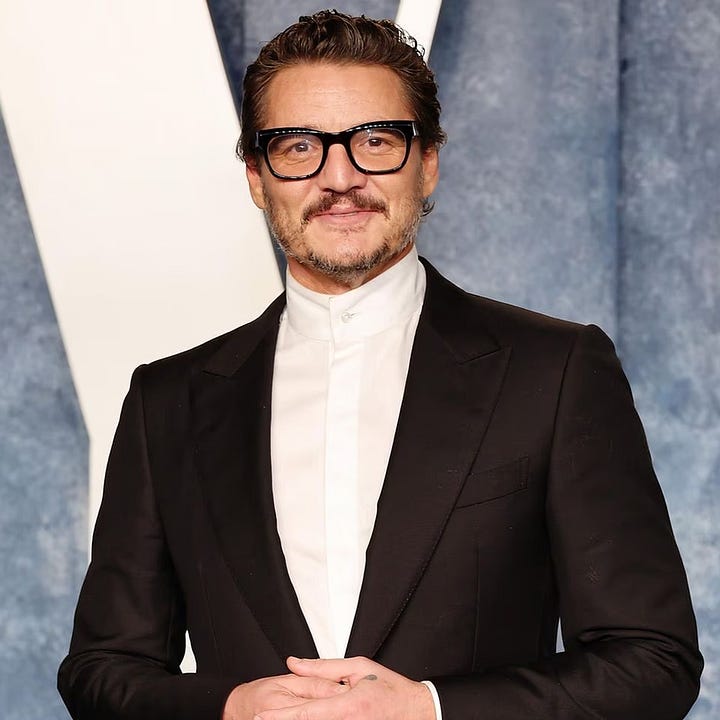
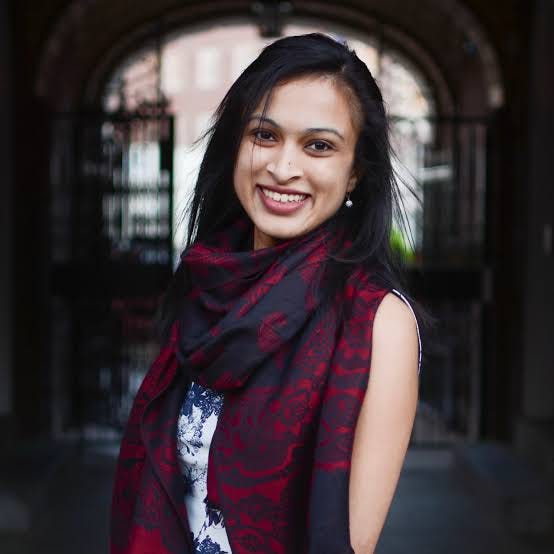
We celebrate these people above. We know these kinds of people exist. Lots of them, famous and not. So then why do we persist with ageism?
Even last year when I was self publishing my book, I had to learn six new programs to get the thing out there in the world. And I’m someone who before that thought I was not tech savvy at all. I believed the lie.
Ageism is really about control… and the scarcity mindset
Death doesn’t just mean a literal end of life. It means being replaced, being erased. And that is often something the living fear even more.
This is the scarcity mindset at play—the belief that there’s only so much room at the table, whether the table is an online platform, a workplace, a community, a family. That if they’re winning, we must be losing. In my life, I’ve heard all these things said in many countries:
“If I step aside, I’ll become irrelevant.”
“They want what I built, but they don’t respect how hard I worked to get here.”
“They’re hoarding the jobs and the power—they won’t make space for us.”
“How can I ever break in when they’ve locked the doors and thrown away the key?”
These fears aren’t baseless. Many industries are built on zero-sum models where power is held tightly at the top. Many younger people have been shut out of leadership. Many older people have been pushed out prematurely.
But the underlying lie here is that leadership, wisdom, creativity, and opportunity are finite. They’re not.
This is why workplaces cling to the young disruptor or the "pay your dues" myths. Both are scarcity stories we’re telling each other and ourselves. Both fuel ageism. Which is why the “Gen X are dinosaurs” article I referenced at the beginning got such a strong reaction globally.
In my career, I’ve also seen this often enough to know that real power expands when it’s shared. Real innovation happens when ideas collide across experience levels—not when they’re kept apart.
We don’t have to fight over slices of the pie. Together, we could all build a bigger and better one.
Ageism is costing us our future
Whether it’s an idea of organising resistance or societal or technological change, we’re better together. Research consistently shows that workplaces with a mix of ages bring broader perspectives, leading to better decision-making and innovation:
Harvard Business Review found that age-diverse teams complement each other's abilities, skills, and information, resulting in improved decision-making, productivity, and overall performance.
A six-year study found that age diversity positively correlates with team performance, especially in complex decision-making tasks.
Reverse mentoring programs in companies like General Electric pair younger employees with senior executives to share insights on emerging technologies and cultural trends.
All the above examples are company based. But this is true of humans everywhere. Age-diversity in groups creates environments where learning flows in all directions. Young people bring fresh perspectives, technological savvy, and new approaches. Older people offer experience, historical context, and mentorship.
It’s an unbeatable combination. And in this day and age where we are up against it on every front, we literally need all of us working together if we’re going to survive and thrive.
It’s like we need to relearn what was so common in many cultures’ peace-making practices that I wrote about last week; consult the whole village before making any decision.
So how do we un-ism Age?
Ageism isn’t about “those other people.” It’s about our own fears. It’s about forgetting that we’ll be those people one day, or having angst that we’re no longer them. It’s about failing to imagine the conditions everyone else lived through. It’s about missing the fact that we’re all necessary to each other.
And it’s about giving up that self-righteous rush when we deride other generations through generalisations and meme wars.
If we’re serious about reconnecting a divided world, we have to stop dividing ourselves by age. Which means we all need to relearn how to own our age and be teachers and students, no matter how old or young we are.
Here are seven ways we can start to heal this divide, and no surprises from me, they all involve conversations:
Invite multiple generations into the room when making decisions. Don’t just talk about inclusion—practice it.
Stop apologizing for your age. Whether you’re 23 or 63, own your place at the table.
Resist the easy punchline. Drop “OK Boomer” and “these damn kids” from your vocabulary. They’re costing us connection.
Mentor someone younger. Be mentored by someone younger. Knowledge flows in both directions.
Read/watch content made by someone outside your generation. Follow creators of different ages here on Substack or on TikTok, YouTube, Instagram if you’re on those platforms too.
Celebrate skill, not age. Notice who’s doing something well—not how old they are while doing it.
Invite curiosity into the conversation. Ask: What don’t I understand about your experience? What can I learn from you?
Every insult we fling at another generation is an internal fear we’re hiding from. And so the first conversation we can have to change ageism, is with ourselves.
I would love to hear in the comments what you think of my take on Ageism. When did you experience it? Did anything I wrote today make you rethink it? Let me know! I respond to all comments, and it’s where we often get into lots of interesting discoveries…
A quick break…
Undividing vs The Substack Algorithm
When they changed the algorithm here, the number of people seeing Undividing plummeted - it went down 85% overnight. Which means a lot less people are seeing the message of reconnecting a divided world here that you’re reading/listening to every week.
If you’re enjoying Undividing, please consider taking out a paid subscription. It helps me do this work, and now actively makes sure more people like yourself see it too.
Plus I’m going to start adding paid tiers to Undividing. I’m not paywalling what I already offer. Repeat, I’m not paywalling what I already offer. But I am going to start live videos and other offerings for paid levels. More to come on that…
You can also Buy Me A Coffee. I post you back a personal 30 sec video for any donation, any size. (Ignore the BMAC amount prompts, you can enter any amount)
You can also support by picking up a copy of my award-winning book How To Burn A Rainbow, the story of how my divorce set me off on a journey - a riches to rags rollercoaster from LA to Berlin where I had to lose it all to find myself.
Back to Undividing …
Undividing Extra: Senior Women For Climate Change
We’ve all heard of Greta Thunberg and her work to stop climate change. A story you may have missed from last year, was about a group of senior women in Switzerland who won a landmark ruling against their government on its lack of climate change action.
While Gen Z lead the charge on climate activism, this is another example of different generations able to effect change on issues that affect us all.
And that brings us to the end of Undividing #23.
Till Thursday when we do the next Emotions Diary, let’s move through this world undividing, and see what this planet can do.
Karl

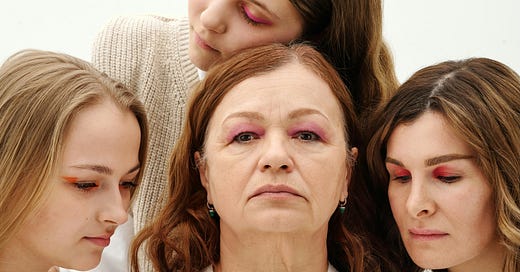


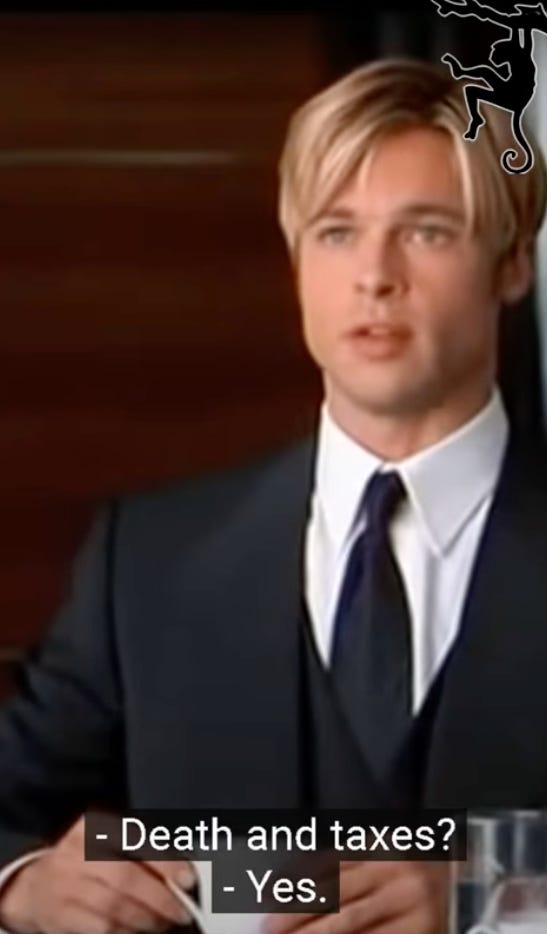
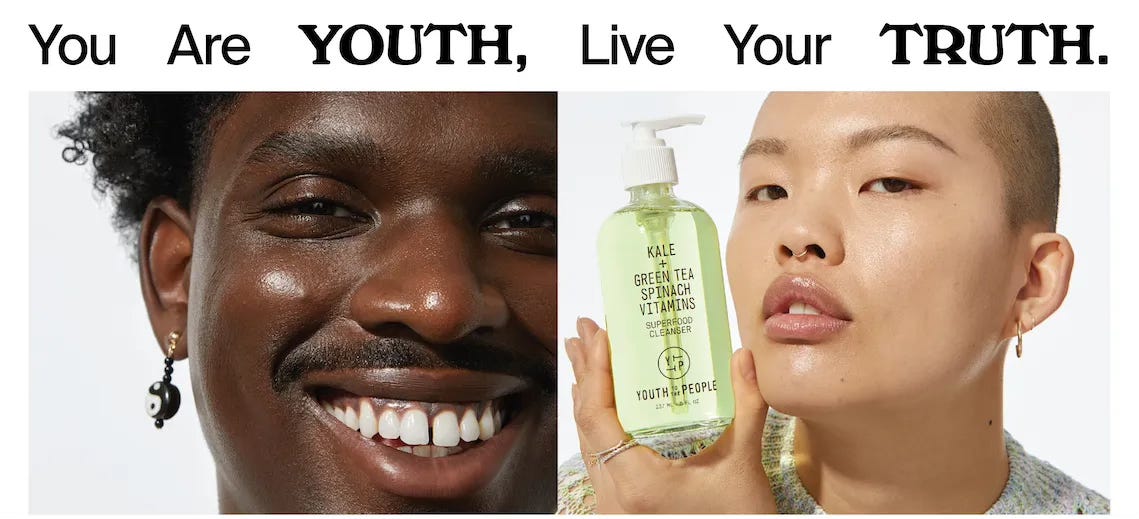
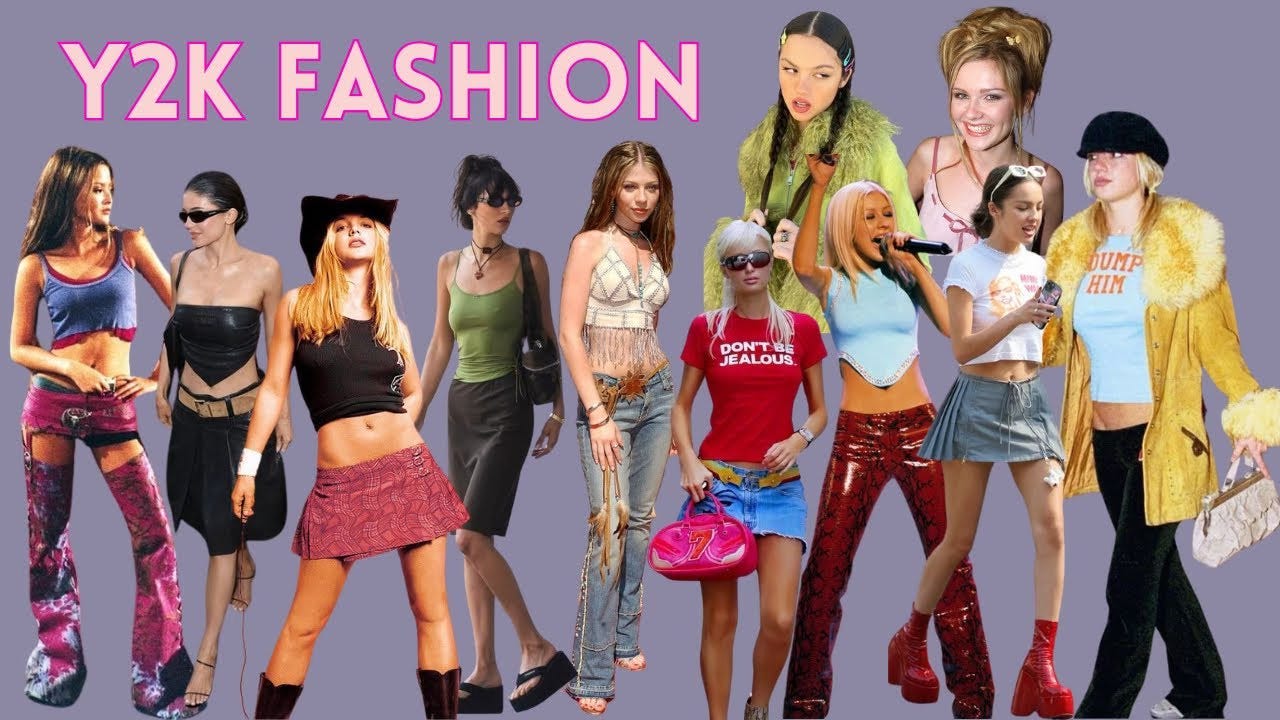
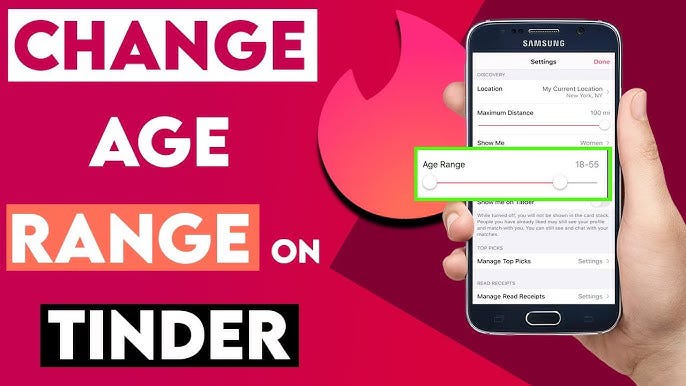
BTW a Note on the same topic as this post got a fantastic comment I wanted to share here, from JT:
A number of years ago, for the intended purpose of what you posit, I hosted an intergenerational event for our public library. It was a potluck with short talks from each of the generations represented plus group sessions with thought-starter questions. Happy to say it was of our most successful library events, which tells us - people are hungry for these conversations to help us understand.
Thank you for the thoughtfulness on an issue that lives among us and we have somehow made a well-fed pet.
I started on-camera TV work in the 1980s and discovered that I was too young to be taken seriously in my early twenties and too old to be given a chance to grow an audience in an anchor role by my mid-30s. The sweet spot was small to get a toe-hold. I left to be a host for a network on a streamer. I got opportunities AND was always aware of the ticking clock. Word came down to the production company from higher-ups that they were now only to hire hosts in their lower 30s and on-cam guests should be in their 20s from then on.
I am not telling a bitter story. I was blessed by so many things while I was there, but I think media is captured by the story of new. And media of all forms is our mirror and our marketer - distorted or not.
It might (almost certainly?) take courage to clean that mirror.
One more time - thank you for your Undivided writing!